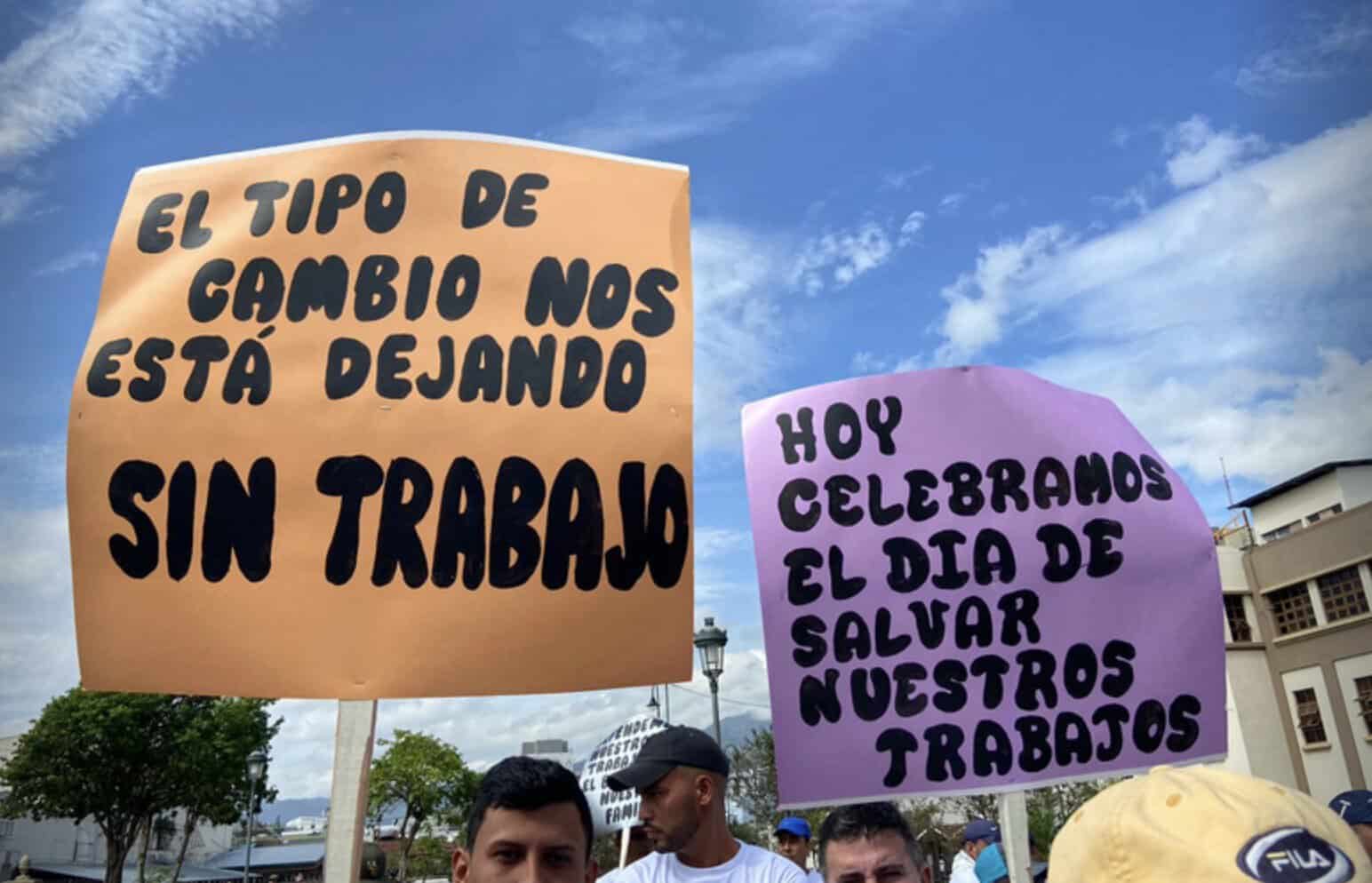The business sector took to the streets of San José in protest against the exchange rate and the abrupt appreciation of the colon, following the failed dialogue with the government and the Central Bank of Costa Rica (BCCR). The march departed at 9 a.m. from La Merced Park, passed by the Central Bank, the Ministry of Finance, and ended at the Plaza de la Democracia.
Farmers, tourism workers, exporters, free trade zones, the construction industry, and other sectors have raised their voices about the effects of the current exchange rate. “When you are not attended to, there is nothing left to do but protest and continue protesting,” said the secretary-general of UPA Nacional, Guido Vargas. This group brings together small and medium farmers from all over the country.
Representatives of the private sector indicated that they were forced to resort to this demonstration since they have urged dialogue and measures without being accepted by the government. Last Friday, April 27, marked the last meeting held by both parties without a positive outcome.
At the end of the meeting, the productive sector sent a communiqué in which it held the Central Bank responsible for all layoffs occurring as of that date due to the exchange rate. That same day, the business sector submitted a series of requests which, according to the Costa Rican Union of Chambers and Associations of the Private Business Sector (UCCAEP), were not met.
The vice-president of the Chamber of Plants, Flowers, and Foliage, Maylen Rojas Vázquez, said they’re calling upon the Central Bank to stabilize the exchange rate. “We hope that Costa Ricans understand that a falling exchange rate has not benefited anyone because in over 11 months with a low exchange rate, we have not perceived any reduction in the cost of living,” she said.
The executive director of the National Chamber of Tourism (CANATUR), Shirley Calvo, indicated that the increase in the cost of production generates unemployment, prevents livelihoods from reaching households, and causes social problems such as insecurity, mainly in highly vulnerable rural areas.
The movement will also serve to honor farmers on their day and acknowledge the contribution of the agricultural, agro-industrial, fishing, and aquaculture sector in the economy and the challenges they are currently facing.






